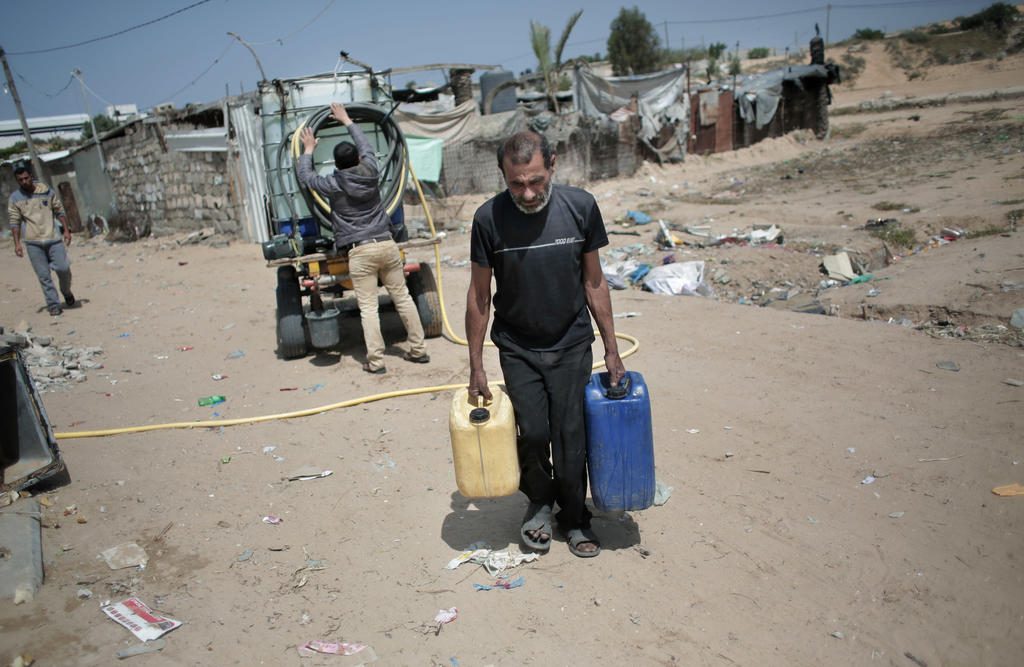Australia/Israel Review
Media Microscope: An idée fixe
Mar 4, 2019 | Allon Lee

The idée fixe that all problems experienced by Palestinians in the Gaza Strip and the West Bank can ultimately be traced back to Israel haunted segments of the ABC in January and February.
An ABC Radio National “Breakfast” (Jan. 3) segment was based on an article from an obscure UK organisation called the Bureau of Investigative Journalism (BIJ). Predictably published in the Guardian, the report claimed there are high levels of antibiotic resistance to superbugs in Gaza due to Israel’s blockade preventing the entry of medicines and the infrastructure needed to supply clean water and treat sewage.
The article did not mention Egypt’s co-enforcement of the blockade, nor Hamas’ role as the Strip’s long-standing government and its refusal to invest in infrastructure or accept aid, nor the Palestinian Authority’s recent refusal to pay for medical supplies for Gaza.
Thus, “Breakfast” listeners heard host Cathy van Extel explain “Gaza is a particularly fertile breeding ground for superbugs because its health system has suffered under the Israeli blockade, and antibiotics are in short supply.”
ANU Professor Peter Collignon was the interviewee to discuss the topic. Unfortunately, his comments suggested an expertise in infectious diseases but none on Gaza.
Van Extel’s questions repeatedly seemed framed to elicit criticism of Israel, but his answers were general and technical.
Openings to bring Hamas into the discussion, such as Collignon making a link between higher antibiotic resistance and greater corruption, were ignored by van Extel.
Instead, she asked, “What are the implications for not just Palestine but for neighbouring countries if we are talking about water and sewerage?”
When Collignon started to answer in general terms, van Extel interrupted, “is this an issue for Israel then… given that they’re instituting this blockade, is it at their own detriment ultimately?”
His initial response was speculative, saying, “Israel can have fairly higher, much higher levels of antibiotic resistance as well,” before admitting, “I can’t answer that.”
This highlighted his inappropriateness as a guest to address the kinds of political questions that van Extel and the ABC appeared to want to focus on.
On January 26, Radio National “Saturday Extra” host Geraldine Doogue conducted an informative interview with visiting Israeli water experts Professor Elion Adar and Professor Noam Weisbrod discussing “drought management”. The interview was completely non-political, with the experts explaining the roles of desalination, reusing treated sewage, finding and fixing leaks early, and pricing water as a valuable commodity.
But the following week Doogue said some listeners had complained to “point out there was more to this story because the whole subject is inextricably caught up in the region’s complex politics.”
According to Doogue, “in terms of a follow up to last week, has water become part of the fight between Israel and its neighbours?”
“Gaza, face[s] dire troubles,” she said, and listed polluted water as the leading cause of child mortality there. The implication appeared to be that Israel was to blame.
Doogue also said a listener had observed during a taxi ride through the West Bank black tanks on the roofs of Palestinian houses and apartment blocks and that his taxi driver had told him Palestinians are the “first to suffer water restrictions which apparently happen on a regular basis… while… supplies were rarely interrupted for the Jewish settlements.”
Doogue’s interviewee, Rand Centre policy researcher Shira Efron, explained that the settlements are connected to Israel’s water system but “a lot of Palestinian villages get their water from water points in the settlements” which are connected to the “advanced Israeli water management system.”
Efron avoided attributing blame to either side.
But Doogue wanted answers, asking “has water become a weapon? That’s what I really want to know?”
Efron wouldn’t bite, answering “I would not say it has become a weapon.”
The tragedy of the region, she said, are not the problems which have “technical solutions” but rather the “political implementation challenges which hinder those solutions from taking place”.
Efron was invited onto the program because she had co-authored a report called “The public health impacts of Gaza’s water crisis”.
That report looked beyond only Israel for Gaza’s woes, noting “Egypt’s restrictions on border access and the movement of goods” and how “Gaza’s power supply…since 2017 [has] been subjected to an intra-Palestinian dispute … between the Palestinian Authority…and Hamas,” as well as problems with disbursing international aid funds to Gaza.
But once again, an ABC host failed to ask questions about Palestinian responsibility for these problems.
Tags: Australia, Gaza, Hamas, Israel, Media/ Academia, Palestinians






